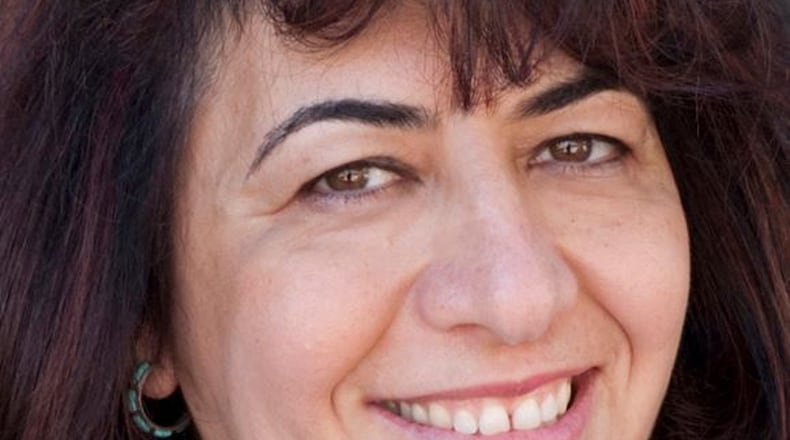TRENDING STORY: Ohio storm system could become ‘weather bomb?’
“I knew how the system was — a word could cost you your life,” she said. “People paid attention and I used metaphors, but didn’t want them to be a shield.”
Rather than continue living that way, Mikhail left her home country and came to the U.S. in 1996, where writing without restriction has earned her numerous awards.
Mikhail will read excerpts from her poetry and soon-to-be-released non-fiction book at 7:30 p.m. Tuesday, Nov. 14, in the Bayley Auditorium of the Barbara Deer Kuss Science Center on the Wittenberg University campus.
The appearance is the keynote for the Wittenberg Series Allen J. Koppenhaver Literary Lecture. Admission is free.
Mikhail, who spoke English, first came to the U.S. in the late 1980s while still a college student to accompany a friend who needed medical care. They arrived in San Francisco and desired to see the Statue of Liberty, their main point of reference in American culture.
DETAILS: Christmas gifts sought after low turnout at Springfield toy drive
They didn’t realize the landmark was on the other side of the country, but found other things about the U.S. interesting, such as the weather being different in various parts of the land, whereas Iraq was dry and hot.
The young students also thought of the hospital as more than a place of healing.
“It was a shocking reality, the hospital was like a resort, it was so clean,” she said. “In Iraq, a hospital smells like a hospital.”
One of Mikhail’s sadder memories is of her late father’s stay in an Iraqi hospital, where the conditions were less than ideal.
After the Gulf War left Iraq in a worse condition, Mikhail made the hard decision to leave the only place she’d known, accepting an invitation to go to Jordan for a writing opportunity in 1995 before immigrating to the U.S.
“I’m the kind of writer who wants to be understood by the readers, not censors,” Mikhail said.
READ MORE: Navistar, big Springfield employer, to make electric school bus
She recalls her second visit here was different as obtaining a VISA meant being photographed and fingerprinted several times, leaving Mikhail to wonder if she had done something outside the law. But security was tightening due to outside threats.
She moved to Michigan, where the cold weather was a shock. But the freedom to write what she wanted offset this, publishing several award-winning books, including the United Nations Human Rights Award for Freedom of Writing in 2001.
Mikhail also married, had a daughter and is an Arabic lecturer at Oakland University.
But her most treasured award is the first she ever got in secondary school, the Iraqi equivalent of high school. It was called the best reader award, which was for borrowing the most books and came from the school librarian. It was just a handwritten award.
“The impact was huge,” Mikhail said. She still gets excited when readers express admiration for her work.
Her forthcoming book, “The Beekeeper: Rescuing the Stolen Women of Iraq,” is a nonfiction book about a beekeeper who helped rescue girls and women enslaved by ISIS. Writing it meant returning to her homeland for the first time since leaving and the trip was unexpected in many ways.
“The surprising part was I was ready for terrible stories,” Mikhail said. “But there was something in their eyes that said they have stories to tell.”
HOW TO GO
What: Dunya Mikhail, Allen J. Koppenhaver Literary Lecture
Where: Barbara Deer Kuss Science Center, Wittenberg University
When: 7:30 p.m. Tuesday, Nov. 14,
Admission: free
About the Author
